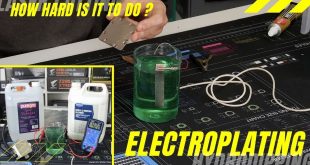One of the fundamental issues with electric cars at the moment is the limitations of the batteries that power them. There are a number of electric vehicles currently available on the UK market such as the Mitsubishi i-MiEV and none of them are capable of much more than 100 miles on a full charge.
It's not likely that electric cars will become a viable alternative to petrol and diesel powered motors until their range is increased significantly via improvements in battery technology or until charging technology improves enough that the batteries can be charged up in a matter of minutes.
Inductive charging is completely wireless and uses an electromagnetic field to transfer energy between two objects. It's already used in a number of products including the Duracell Powermat.
Qualcomm is well known for producing chips for the latest smartphones and tablets but it's also one of the pioneers of this wireless charging technology for automotive markets. Their technology is called Qualcomm Halo and could be used to keep vehicles batteries charged to between 40% and 80%.
At present the technology only works when the vehicle is stationary but could theoretically be used when vehicles are in motion. This would be very expensive to implement, though, as it would require a great deal of equipment to be installed into roads. Trials of the new technology should take place before the end of the year using Delta E-4 high performance electric coupe's which are designed and built from the ground up in the UK.
If this technology proves successful, electric cars would become more viable as they wouldn't need such large batteries, reducing the cost and weight of vehicles substantially.
KitGuru says: This technology could well pave the way to higher adoption of electric cars and would be music to the ears of all the ecoGuru's out there!
 KitGuru KitGuru.net – Tech News | Hardware News | Hardware Reviews | IOS | Mobile | Gaming | Graphics Cards
KitGuru KitGuru.net – Tech News | Hardware News | Hardware Reviews | IOS | Mobile | Gaming | Graphics Cards



